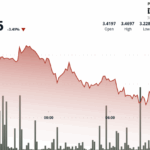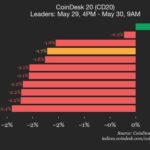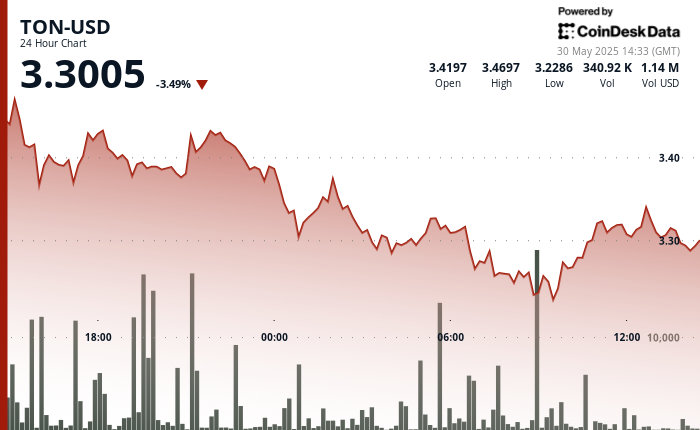
Long-term Bitcoin holders are staying put instead of cashing out, fueling the ongoing rally despite hitting new all-time highs.
In May, Bitcoin experienced a significant price surge, yet long-term holders have engaged in selective profit-taking. From March 1 to May 27, the 7-day simple moving average (SMA) of the spent output profit ratio (SOPR) for long-term holders rose from 2.10 to 2.22, suggesting a slight increase in realized gains. Conversely, the 30-day SMA decreased from approximately 2.51 to 2.17 during the same timeframe, reflecting a decline of 13.6%.
This discrepancy is noteworthy. The rise in the 7-day SMA indicates that certain long-term coins were sold for profit during Bitcoin’s all-time high of $111,700 on May 22, while the decline in the 30-day average suggests a decrease in overall profit realization among long-term holders.
Historically, an increasing trend in the 30-day LTH SOPR has been interpreted as a signal of heightened selling pressure. However, the downward movement observed through March, April, and May indicates that many older coins have remained inactive despite the price rally.
Since the start of March, BTC has appreciated over 26%, rising from approximately $86,000 to a peak of $111,700 before settling around $109,000. Typically, such movements would lead to increased profit-taking across the board, yet the SOPR trend indicates that long-term holders are exercising caution. This behavior reflects a strong commitment to holding, resulting in diminished selling pressure, which may support further price increases.
As of May 27, the 30-day LTH SOPR remains above 2.0, indicating ongoing profitability, yet it remains significantly lower than the highs reached in March. If Bitcoin’s price maintains itself above $100,000, accompanied by a stable or declining SOPR, it could suggest that long-term holders, including a substantial number of institutional participants, are not in a hurry to liquidate their assets. This scenario could pave the way for additional price growth, as the supply from long-term holders remains limited.



















Post Comment